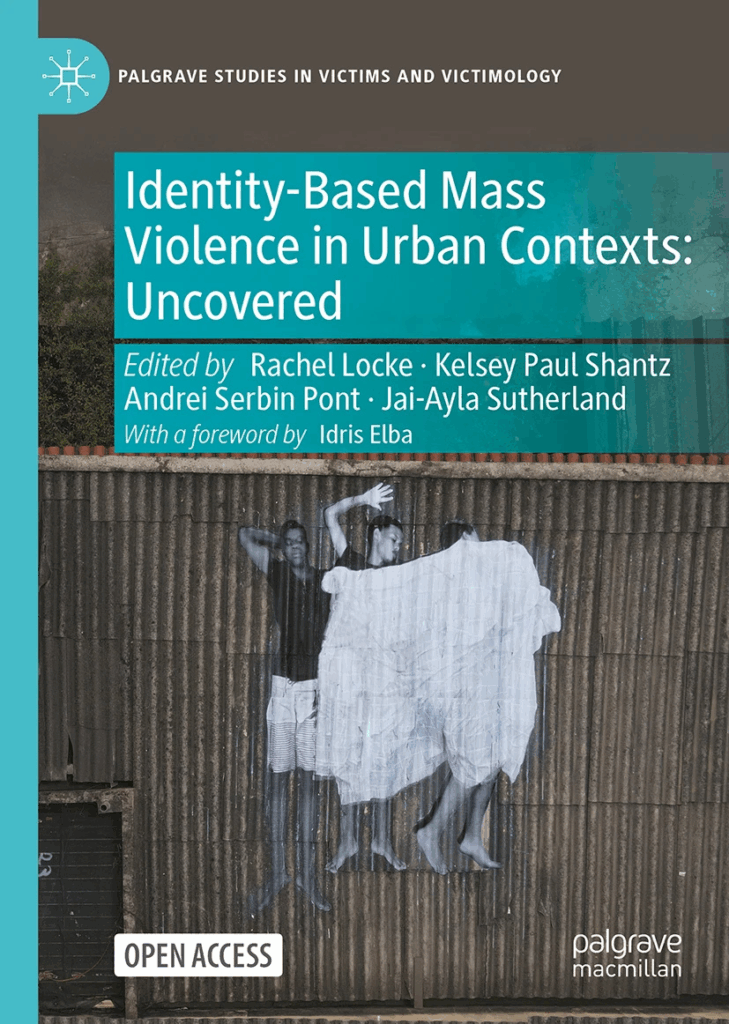Pathways
Recommendations, resources, and opportunities to engage.

Engage
There are a variety of ways that readers of this volume can carry forward its ideas. All readers are welcome to reach out to the editors and, by way of the editors, to the contributors, to engage with the material in a respectful way. We welcome opportunities for discussion and dialogue, including book clubs, policy debates, webinars, podcasts, or other means of engagement.
This volume emerged in an iterative fashion from a set of simple questions. We—the collective editors, contributors, and reference group members—are the shepherds of these ideas, but not the sole carriers of them. We are open to exploring future pathways for this work and welcome ideas for the direction those pathways can take.
It is worth stating directly that readers are encouraged to question the ideas they come across, and to bring others into constructive disagreement. What is most important is not a single solution, but rather the process of dialogue and respectful inquiry.
Recommendations
Developing recommendations relied on deep listening, reflexivity, and centering affected individual and community voices—the same principles required for future action.
Guiding principles
These are the guiding principles that informed our recommendations to transform urban spaces and prevent IBMV.
- Address process as well as outcomes.
Process recommendations must include participatory, inclusive, and intersectional methods, while outcome recommendations must be evidence-based, data-driven, and locally tailored. Focusing on process is crucial. Transformative change requires that legal and policy decision-making engage in consensus-building methods in which individuals collaborate on developing solutions together. - Apply rights-based, trauma-informed, and survivor-centered approaches at the individual, collective, and societal levels.
These approaches protect human rights; focus on state obligations and accountability to all people within its borders; address trauma in affected communities, including across generations; place the well-being of victims-survivors at the center of violence prevention; and help develop solutions to address and prevent individual harms, collective harms, and wider, social harms. - (Re)build trust, relationships, and community while respecting and integrating varied forms of expression and knowledge.
Policymakers must understand their own roles in—and wrongful benefits from—structures and institutions that perpetuate discrimination and violence against certain identity groups in cities. These structures and institutions must be remade away from the hierarchical domination and subjugation of certain identity groups over others, to a place of valuing collective ways of being, centering new forms of knowledge and expertise. - Engage a multitude of actors operating across diverse sectors.
Stakeholders must understand the pathways of structural and acute violence—and these pathways’ influence within the urban ecosystem—toward developing methods and action items to respond in preventative and transformative ways. - Lean into deep understanding and community building across related fields of study.
Professional areas of study are siloed, but through cross-pollination and deep listening, an extraordinary amount of insight, knowledge, and collective action can be achieved. The combination of identity-based discrimination and mass violence is a complex social, economic, political, legal, environmental, and structural problem that requires a multidisciplinary, field-building approach. - Pursue transformative change by focusing on both acute and structural forms of violence.
To prevent IBMV, policies, programs, plans, and practices must address immediate harms at the same time as they tackle the underlying drivers and root causes of identity-based discrimination and mass violence in urban spaces.
Practical areas of action
While every chapter provides suggestions or insights for action, the editors dedicated one chapter to policy recommendations that can and should be taken. All the recommendations are informed by the guiding principles that form their foundation. Specific recommendations include:
- Reframing narratives.
The stories that are told about violence inform the sets of solutions that are applied. It is essential to unpack and reframe harmful narratives. - Shifting policy orientations.
It is of urgent priority to frame responses around rights. Individual and collective rights are eroding and the solution is not to essentialize core needs, but rather to have a rights-based vision of humanity. - Focus on urban conflict.
There is more conflict in the world today than any time since WWII. Wars increasingly target civilians and involve a range of state, quasi-state, and nonstate actors. There is a need to disambiguate how IBMV precedes conflict, is core to war making, and is pursued in the wake of conflict. - Institutional localization.
Better appreciating the mosaics of power and disempowerment is key to ensuring that efforts to localize do not end up reinforcing the very abuse and discrimination that is creating and reinforcing disposable communities. - Invest in dialogue.
Knowledge is power. The way that knowledge is kept (or gate-kept) and used can cause both harm and benefit. This volume argues in substance and in style for an equality of voices and perspectives. - Rethink funding priorities.
Equity-oriented funding strategies are essential, alongside an ethos that demands rights for all, regardless of identity or status. - Invest in community.
Invest in organizations that work to protect human rights defenders, journalists, academics, political prisoners, and all those who are being persecuted for their beliefs, their opposition to political elites, or their identities. - Training and capacity building.
Those who analyze social patterns—whether in legal, transportation, education, healthcare, or other systems—must have the capacity to understand protective mechanisms people engage when they have experienced real structural harm.
Areas for Further Research
This volume is not comprehensive of all identity-based mass violence around the globe, but rather a cross-section that illustrates the framing and larger issues underlying how such violence occurs globally. We invite researchers, practitioners, journalists, and those who are committed to understanding and addressing IBMV to investigate other instances of such violence, including:
- IBMV experienced by Indigenous communities and the relationship between IBMV and murdered and missing Indigenous persons;
- IBMV in Gaza, Sudan, Myanmar, and across all mass atrocities;
- IBMV in Ukraine and other active conflicts;
- IBMV in Haiti and other locations experiencing mass political instability felt more by some identity groups than others;
- IBMV in rural locales and how individuals and groups outside of major cities experience IBMV both similarly and distinctly from urban populations.
There is so much more to uncover. We invite you to reach out to us if you are interested in joining this work.
Contact Us
Would you like to suggest an event or idea for furthering the conversation about preventing identity-based mass violence? Reach out to one of us by email:

Identity-Based Mass Violence in Urban Contexts: Uncovered
The edited volume’s commitment to an expansive, inclusive approach to understanding and addressing identity-based mass violence (IBMV) makes it a significant contribution that spans multiple disciplines and aspires to reduce violence and promote peace in urban settings worldwide.

